- Home
- Iris Murdoch
The Bell
The Bell Read online
Table of Contents
Title Page
Copyright Page
Introduction
Dedication
CHAPTER 1
CHAPTER 2
CHAPTER 3
CHAPTER 4
CHAPTER 5
CHAPTER 6
CHAPTER 7
CHAPTER 8
CHAPTER 9
CHAPTER 10
CHAPTER 11
CHAPTER 12
CHAPTER 13
CHAPTER 14
CHAPTER 15
CHAPTER 16
CHAPTER 17
CHAPTER 18
CHAPTER 19
CHAPTER 20
CHAPTER 21
CHAPTER 22
CHAPTER 23
CHAPTER 24
CHAPTER 25
CHAPTER 26
FOR THE BEST IN PAPERBACKS, LOOK FOR THE
THE BELL
IRIS MURDOCH was born in Dublin in 1919, grew up in London, and received her university education at Oxford and later at Cambridge. In 1948 she became a Fellow of St. Anne’s College, Oxford, where for many years she taught philosophy. In 1987 she was appointed Dame Commander, Order of the British Empire. She died on February 8, 1999. Murdoch wrote twenty-six novels, including Under the Net, her writing debut of 1954, and the Booker Prize-winning The Sea, The Sea (1978). She received a number of other literary awards, among them the James Tait Black Memorial Prize for The Black Prince (1973) and the Whitbread Prize for The Sacred and Profane Love Machine (1974). Her works of philosophy include Sartre: Romantic Realist (1980), Metaphysics as a Guide to Morals (1993), and Existentialists and Mystics (1998). She also wrote several plays and a volume of poetry.
A. S. BYATT is the author of Possession and other acclaimed novels. She lives in London.
By the same author
Philosophy
SARTRE, ROMANTIC RATIONALIST
THE FIRE AND THE SUN
ACOSTOS: TWO PLATONIC DIALOGUES
METAPHYSICS AS A GUIDE TO MORALS
EXISTENTIALISTS AND MYSTICS
Fiction
UNDER THE NET
THE FLIGHT FROM THE ENCHANTER
THE SANDCASTLE
THE BELL
SEVERED HEAD
AN UNOFFICIAL ROSE
THE UNICORN
THE ITALIAN GIRL
THE RED AND THE GREEN
THE TIME OF THE ANGELS
THE NICE AND THE GOOD
BRUNO’S DREAM
A FAIRLY HONOURABLE DEFEAT
AN ACCIDENTAL MAN
THE BLACK PRINCE
THE SACRED AND PROFANE LOVE MACHINE
A WORD CHILD
HENRY AND CATO
THE SEA, THE SEA
NUNS AND SOLDIERS
THE PHILOSOPHER’S PUPIL
THE GOOD APPRENTICE
THE BOOK AND THE BROTHERHOOD
THE MESSAGE TO THE PLANET
THE GREEN KNIGHT
JACKSON’S DILEMMA
Plays
A SEVERED HEAD (with J. B. Priestley)
THE ITALIAN GIRL (with James Saunders)
THE THREE ARROWS and
THE SERVANTS AND THE SNOW
THE BLACK PRINCE
Poetry
A YEAR OF BIRDS
(Illustrated by Reynolds Stone)
PENGUIN BOOKS
Published by the Penguin Group
Penguin Putnam Inc., 375 Hudson Street, New York, New York 10014, U.S.A.
Penguin Books Ltd, 27 Wrights Lane, London W8 5TZ, England
Penguin Books Australia Ltd, Ringwood, Victoria, Australia
Penguin Books Canada Ltd, 10 Alcorn Avenue,
Toronto, Ontario, Canada M4V 3B2
Penguin Books (N.Z.) Ltd, 182-190 Wairau Road,
Auckland 10, New Zealand
Penguin Books Ltd, Registered Offices:
Harmondsworth, Middlesex, England
First published in the United States of America by The Viking Press 1958
Published in Penguin Books 1987
Edition with an introduction by A. S. Byatt published in Great Britain by
Vintage, an imprint of Random House UK Ltd 1999
Published in Penguin Books 2001
Copyright © Iris Murdoch 1958
Copyright renewed Iris Murdoch, 1986
Introduction copyright © A. S. Byatt, 1999
All rights reserved
Library of Congress Cataloging-in-Publication Data
Murdoch, Iris
The bell / Iris Murdoch ; introduction by A. S. Byatt.
p. cm.
eISBN : 978-1-101-49566-7
1. Gloucestershire (England)—Fiction. 2. Religious communities—Fiction.
3. Married women—Fiction. 4. Church bells—Fiction. 5. Gay men—Fiction.
I. Title.
PR6063.U7 B45 2001
823’.914—dc21
2001036040
http://us.penguingroup.com
INTRODUCTION
I remember my first reading of The Bell with uncanny clarity. It was 1958. I was an unhappy postgraduate in Oxford, working on religious allegory in the seventeenth century. I wanted to write a novel—I was writing a novel—and I feared I would never learn how, and should perhaps not be trying. Earlier in Cambridge a prescient friend had given me Under the Net, saying he thought it was my kind of book. I had admired it, and puzzled over it, and had been uncomfortably aware that I had not understood either quite what it was about, or why it was the shape it was. The Bell I devoured, entranced, involved, feeling puritanically that perhaps a novel had no right to be both so completely readable and so certainly serious. My idea of the possible novels in English shifted in my head. Vistas and avenues opened up. It took me years to work out how and why. Meanwhile I read and reread The Bell.
Under the Net and Flight from the Enchanter, Murdoch’s first two novels, I came to understand, are European novels. Under the Net is French and Irish, owing its form to Raymond Queneau to whom it is dedicated, and to the early Samuel Beckett of Murphy. It is partly a philosophical quarrel with Sartre’s La Nausée; it is brilliant and innovative. Murdoch’s third novel, The Sandcastle, was a not entirely successful attempt to write more realistically about “ordinary” people and problems—it had elements of women’s magazine romanticism, and touches of the fey. The Bell felt like a more powerful and sustained attempt to create a dense, real world of feelings and behaviour, as opposed to the stylised dancing patterns of the first two novels.
To say that The Bell is a novel of ideas is to misdescribe it. One of Murdoch’s abiding preoccupations was with the complicated, not wholly describable “thinginess” of the physical and moral world, which could be represented in art in a more complex way than it could be analysed in discourse. It is better to say that The Bell is a novel about people who have ideas, people who think, people whose thoughts change their lives just as much as their impulses or their feelings do. (This includes Dora, who often does not stop to think until too late.) It is a novel about goodness, the good life, power, cruelty, and religion. It is also funny, sad and moving. Murdoch wrote in her wise book on Sartre1 that he had “an impatience, which is fatal to a novelist proper, with the stuff of human life”. Her own desire to make a world in which consciousnesses were incarnate, embedded in the stuff of things, might seem to derive from George Eliot, who wrote movingly of her wish to make pictures, not diagrams, to “make certain ideas thoroughly incarnate”. Eliot, like Murdoch, was a European intellectual who had also a very immediate sense of human bodies, encounters and absurdities. They shared a preoccupation with the tensions between the formal complexity and design of the work of art and the need to give the characters space, freedom, to be people, not only to represent ideas or classes. It may be that Murdoch thought that
Eliot had failed. She asked me once what I thought was the greatest English novel. Middlemarch, I said. She demurred, looking disapproving, and finally said that she supposed it was hard to find which one of Dickens’s novels was the greatest, but that surely he was the greatest novelist ... Eliot began, in English, the elegant patterning with metaphor and leitmotiv that Murdoch, who believed that novelists were first and essentially storytellers, sometimes saw as a trap.
Nietzsche saw Plato’s dialogues as the first form of the novel, and there is a sense in which all Iris Murdoch’s novels contain Platonic dialogues, in which knotty problems of the nature of truth, goodness and beauty are worked out. The two leaders of the lay community attached to the Abbey at Imber, James and Michael, represent two different attitudes to the moral and the spiritual life. James sees these as a matter of simple duties, attention to rules, practical goodness. Michael sees them as a matter of imagination and romantic desire. Both make persuasive cases in their sermons, which both rely on different aspects of the symbolism of the bell which is to be installed in the Abbey. Michael, like many of Murdoch’s most attractive heroes, is trying to convert eros into agape, earthly love into spiritual wisdom. In her essay “Existentialists and Mystics” (1970) Murdoch contrasts the existentialist hero—“powerful, self-assertive”—with the mystical hero—“an anxious man trying to discipline or purge or diminish himself”. “The chief temptation of the former is egoism, of the latter masochism.” Murdoch was fascinated by what she repeatedly called the “machinery” of Freud’s description of human behaviour, which she treated with respect and suspicion. He presents us, she says in “On ‘God’ and ‘Good’ ” (1969) with “a realistic and detailed picture of the fallen man ... Freud takes a thoroughly pessimistic view of human nature. He sees the psyche as an egocentric system of quasi-mechanical energy, largely determined by its own individual history, whose natural attachments are sexual, ambiguous, and hard for the subject to understand or control. Introspection reveals only the deep tissue of ambivalent motive, and fantasy is a stronger force than reason. Objectivity and unselfishness are not natural to human beings.” Elsewhere she says that Freud’s description of the machinery of masochism shows how fantasy can produce imitations or parodies of the spiritual denial of the self up to the highest level. Michael Meade is her first extended study of spiritual masochism and its unpredictable effects. He tells himself stories of the spiritual life (fantasies), and learns from the Abbess across the water a lesson many of Murdoch’s characters learn in extremis, that the true spiritual life has no story and is not tragic.
The Bell is about religion and sex, and the relations of those two. One of Murdoch’s great powers as a novelist is her ability to communicate sexual urgency in all its delectable, humiliating, baffling, driven complexity. Sex is part of the thinginess of the world, as well as part of the hidden machinery of the human psyche. “Art” she says in “Existentialists and Mystics” “is not discredited if we realise that it is based on and partly consists of ordinary human jumble, incoherence, accident, sex. (Sex, though it produces great thought-forms, is fundamentally jumble: not even roulette so much as mish-mash.)” The depiction of sex in this novel, in Nick, Michael, Toby, Paul and Dora, is both absurd and terrible, accurate and truly unpredictable. It is made more terrible and more touching because it is set against the powerhouse across the water, the enclosed order of nuns which Catherine is to enter. It swarms against an ideal of self-denial. Murdoch can write about flesh, male and female, its tastes and textures, smells and dampness, in a way that is imagined through her own. The Platonic dialogue which is a skeleton of the novel is about sex, but the reader’s experience is immediate, and sensual.
The immediate reality of this novel also depends on other sensuous immediacies—very English—the shabby country house, the thickness of the vegetation, the smells and textures of the orchard, the woods, and the water of the lake, with its ooze and weeds. These are seen first through the eyes of Dora, the “habitual town-dweller to whom the countryside looks always a little unreal, too luxuriant and too sculptured and too green”. The world of the community is the observed social comedy (and pathos) of the traditional English novel, but the novelist I always think of in the context of The Bell is Henry James, whose countrysides always invoke paradise, whose elegant dreaming façades hide demons. There is an easy balance in this novel between conscious aesthetic patterning and the immediacy of particular experiences. Consider, for instance, the complete range of musical or singing experiences, from simple birdsong to jazz, from a Bach recital on gramophone records to what Murdoch (like James in The American) calls the “hideous” purity of the nuns’ plainsong. Peter Topglass imitates birdsong; there is Catherine’s singing of the madrigal “The Silver Swan”, there is the blackbird Dora hears over the telephone from London. (Iris Murdoch wrote of Kant’s respect for birdsong as an example of “free beauty”—“a bird’s song, which we can reduce to no musical role, seems to have more freedom in it, and thus to be richer for taste, than the human voice singing in accordance with all the rules that the art of music prescribes.”) There is the voice of the bell itself, which Dora causes to sound out. I used to believe that the bell itself had to carry too much of the weight of the action of the story, and that its discovery and fate somehow substituted a symbolic action for a “real” one at the dramatic centre of the story. I think now that we all had (and have) too facile and simple an idea of the opposition between realism and fantasy-myth. In my case at least this was the result of an enthusiastic response to Iris Murdoch’s brilliant polemic of 1961, “Against Dryness”.
“Against Dryness” is a persuasive and powerful critique of the state of the novel halfway through the twentieth century. The nineteenth-century novel, Murdoch believed, was intrinsically better and more powerful than the twentieth-century novel, partly for historical and political reasons which Murdoch describes with some subtlety. It was possible for writers like Tolstoy and Eliot, she said, to “use a spread-out substantial picture of the manifold virtues of man and society”, to “see man against a background of values and realities which transcend him” in a way that had become difficult or impossible. She argued that the success of Liberalism, the arrival of the Welfare State, had removed certain political incentives to thinking about human beings as “real various individuals struggling in society”. For the nineteenth-century novelist, she said, quoting Marx, it was possible to see characters as both types and individuals merged. People in that world were only partly free agents—they interacted with a complicated moral world from which they had much to learn. Modern writers, on the other hand, thought in terms of “the human condition”, and pictured human beings on the whole as “rational and totally free”. The twentieth-century novel, she said in a famous distinction that was almost too brilliantly quotable, was “either crystalline or journalistic”. The crystalline novel was a small, perfect object like a poem, “quasi-allegorical”; the journalistic novel was a “large shapeless quasi-documentary object” telling “some straightforward story enlivened with empirical facts”. Any reader, any aspiring writer, could recognise the approximate justice and penetration of these descriptions. They could also respond to her suggested remedy:Against the consolations of form, the clean crystalline work, the simplified fantasy-myth, we must pit the destructive power of the now so unfashionable naturalistic idea of character.
Her respect for the Russians—“those great masters of the contingent”—her sense of something lost and diminished, echoed the feelings and ideas of Anna Wulf, the novelist heroine in Doris Lessing’s The Golden Notebook, also published in 1961. Wulf too regrets that she will never write a “philosophical” novel like Tolstoy or Thomas Mann; Wulf too feels that the realist novel has become “an outpost of journalism”. Wulf’s suspicion of her psychoanalyst’s tendency to feel that dreams which reproduce Jungian mythical motifs do anything to solve the human mess she is in, can be related to Murdoch’s persisting suspicion of her own ease in creating fantasy
-myths. The second-rate novelist in The Black Prince creates “a congeries of amusing anecdotes, loosely garbled into ‘racy stories’ with the help of half-baked unmediated symbolism.” Murdoch’s argument that our moral vocabulary is impoverished and deficient can be related to the strenuous verbal experiments of The Golden Notebook, in which Anna’s political diaries, her Communist writer friends’ daydreaming fantasies, newspaper cuttings, a deliberately ordinary novelish novel-in-a-novel describe a sense of loss without creating a new coherent form. Lessing, like Angus Wilson, William Golding, and Murdoch herself also argued that the novel of the time, despite the recent war and the Holocaust, had trouble in wholly imagining evil. “Our inability to imagine evil is a consequence of the facile, dramatic, and in spite of Hitler, optimistic picture of ourselves with which we work” (“Against Dryness”). We saw everything, Murdoch seemed to be suggesting, too easily from inside ourselves. Our sense of value was wound up in our judgement of our own “sincerity”. In another phrase which I never forgot, which changed the way I looked at things, she wrote, “For the hard idea of truth we had substituted the facile idea of sincerity.”
You cannot, of course, have a hard idea of truth if you have insufficient faith in the human capacity to apprehend or describe the world. Recent, very exciting, intellectual fashions and explorations have caused us to question all our assumptions, to question the adequacy of language to describe the world, and our own powers to know either language, the world, or how they are related. I think, indeed, that the recent groundswell of interest in science, and scientific thought, is a function of the need for some hard idea of truth in two generations who have been disabused of the idea that the concept is meaningful. At least scientists’ empirical truths work solidly in a solid world. They contradict solipsism.
What Murdoch understood better than anyone else I have read was the way in which our sense of our moral beings, the imperatives and prohibitions we desire, or agree, to accept, depended on a religious structure which our society as a whole no longer believes in. The Bell is her first directly religious novel. The moral welfare of the community in Imber (which must derive from “umber”, “umbra”, shades or shadows) depends on the spiritual reality of the enclosed powerhouse of the Abbey. Life is easier for James Tayper Pace than for Michael, because he is more sure of both the truths of his religion and the rules that derive from them and are handed down. Michael’s religion is more personal, and Dora has none, only vague intuitions and a very significant vision of the “reality” of the works of art in the National Gallery. In later novels there are a series of characters who are good men, struggling, like Murdoch herself, to work out an idea of goodness in a world without religion, who only realise slowly and with difficulty how much of their sense of good derives (historically and in the forms of society we still live in) from a religion they no longer believe. (Marcus in The Time of the Angels, Rupert in A Fairly Honourable Defeat.) The Time of the Angels was written at a time when the theology of the “Death of God”, derived from Nietzsche and Altizer, was paradoxically energising the Church by saying that God had withdrawn, was unknowable, was absent from His creation. The title comes from the idea that when God withdraws the world fragments, and various angels, good and evil, are all-powerful. It can be seen, in retrospect, that the final enclosure of Imber in the world of the Abbey prefigures some such separation.

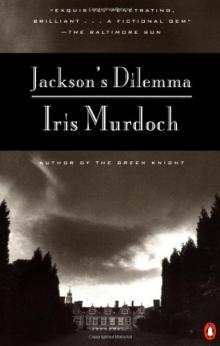 Jackson's Dilemma
Jackson's Dilemma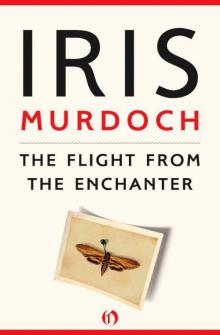 The Flight From the Enchanter
The Flight From the Enchanter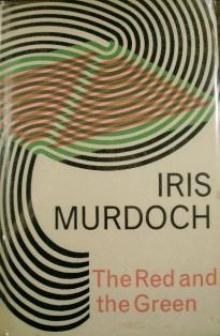 The Red and the Green (Vintage Classics)
The Red and the Green (Vintage Classics)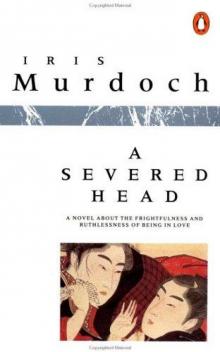 A Severed Head
A Severed Head The Black Prince
The Black Prince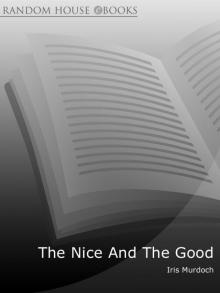 The Nice and the Good
The Nice and the Good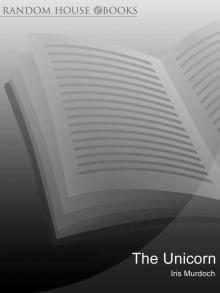 The Unicorn
The Unicorn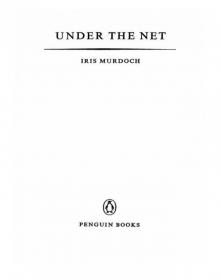 Under the Net
Under the Net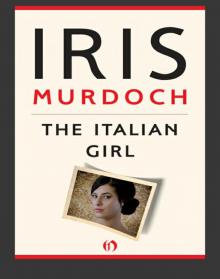 The Italian Girl
The Italian Girl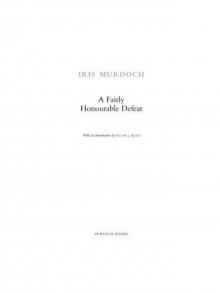 A Fairly Honourable Defeat
A Fairly Honourable Defeat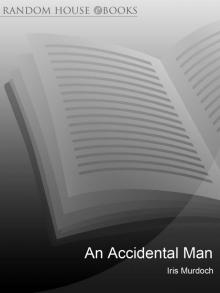 An Accidental Man
An Accidental Man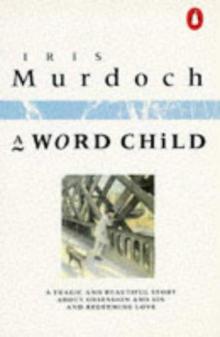 A Word Child
A Word Child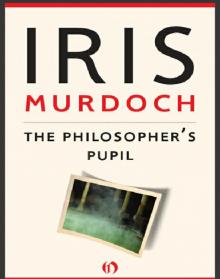 The Philosopher's Pupil
The Philosopher's Pupil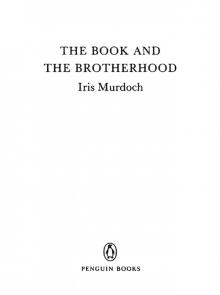 The Book and the Brotherhood
The Book and the Brotherhood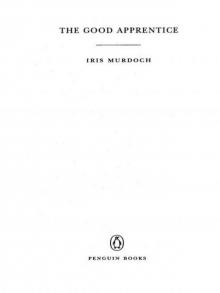 The Good Apprentice
The Good Apprentice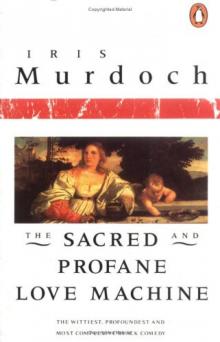 The Sacred and Profane Love Machine
The Sacred and Profane Love Machine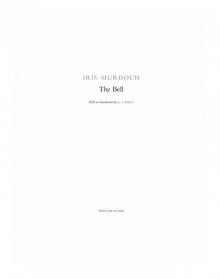 The Bell
The Bell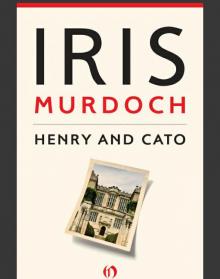 Henry and Cato
Henry and Cato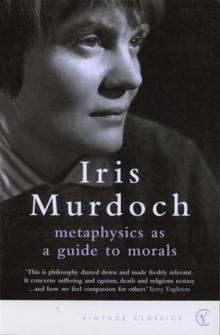 Metaphysics as a Guide to Morals
Metaphysics as a Guide to Morals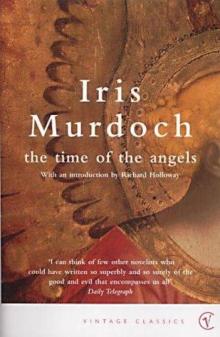 The Time of the Angels
The Time of the Angels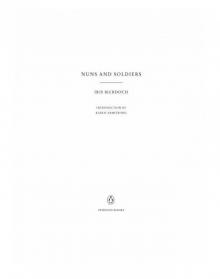 Nuns and Soldiers
Nuns and Soldiers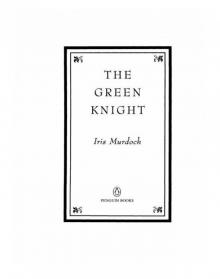 The Green Knight
The Green Knight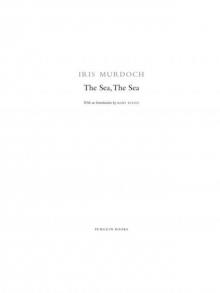 The Sea, the Sea
The Sea, the Sea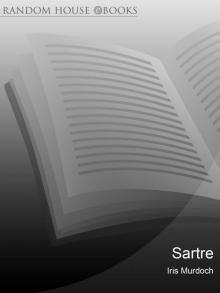 Sartre: Romantic Rationalist
Sartre: Romantic Rationalist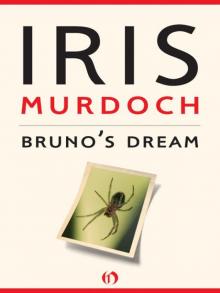 Bruno's Dream
Bruno's Dream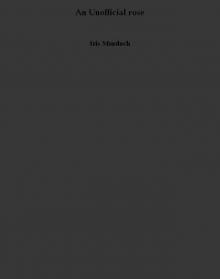 An Unofficial rose
An Unofficial rose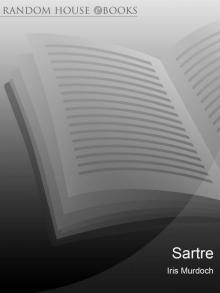 Sartre
Sartre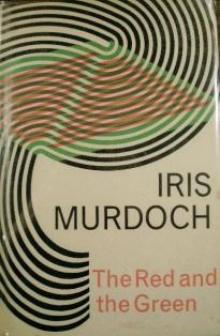 The Red and The Green
The Red and The Green